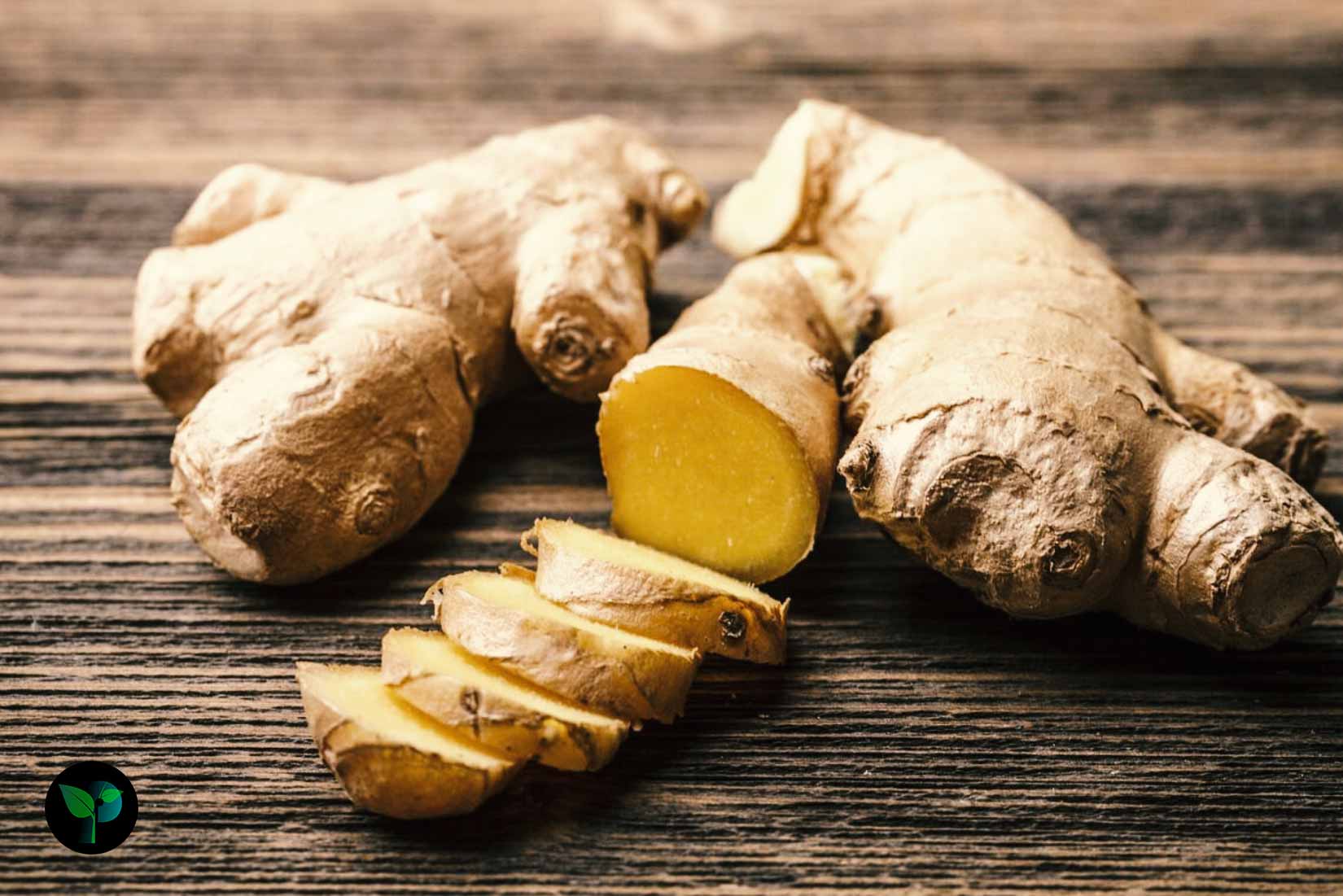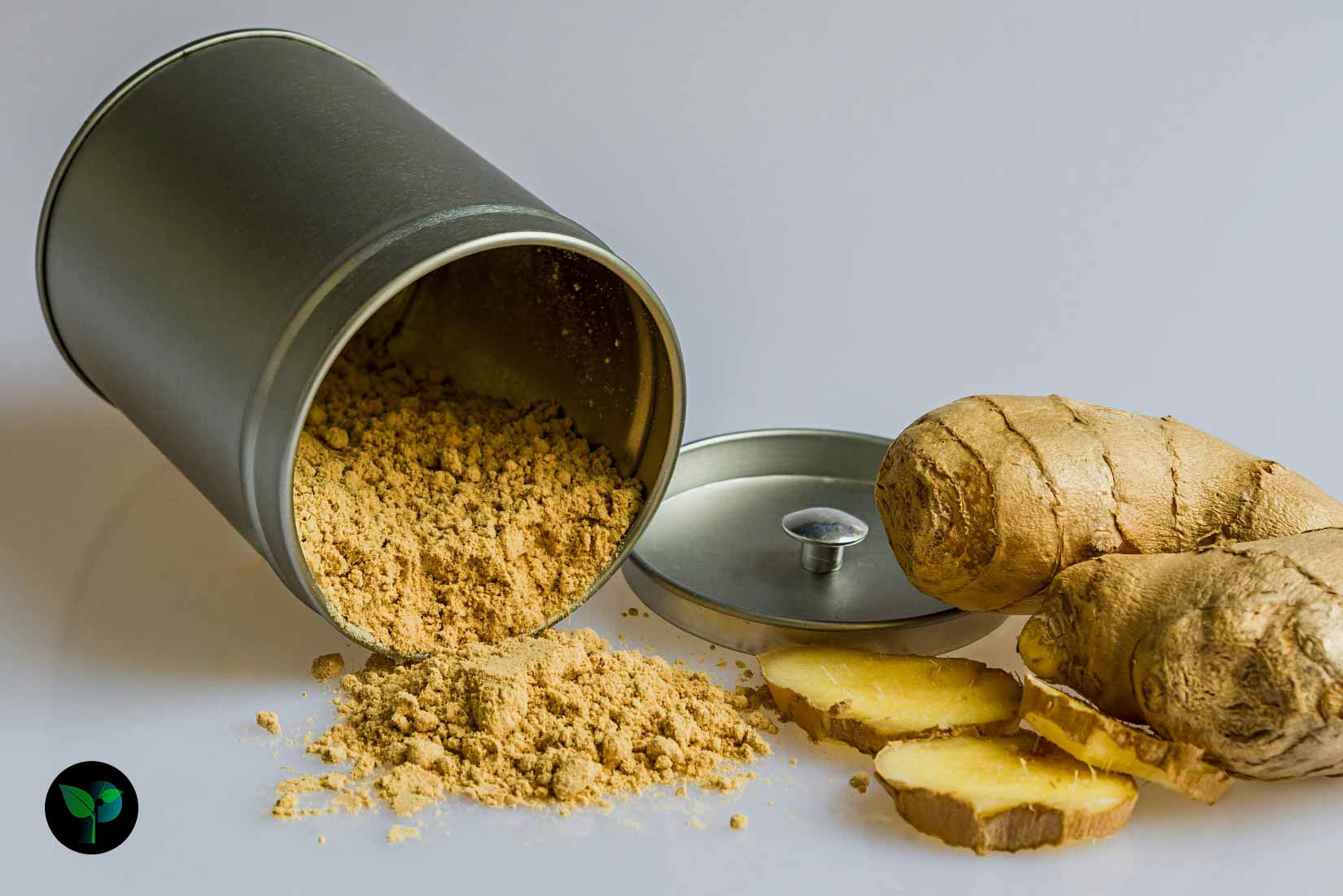The high cost of living has led us to think about how we can reduce our expenses. One of the most expensive parts of our lives is related to medicine and treatment. Plants have helped humans since ancient times and have had various uses. In recent years, the medicinal properties of plants have been proven by researchers in the field of botany and we can benefit from them. In this post from Plants Folder, join us as we explore ginger, this amazing plant, and scientifically discuss its properties.
History and Origin of the Plant
Ginger, with the scientific name Zingiber officinale, is a type of root that is grown in Southeast Asia and has been used for its medicinal and therapeutic properties for many years. This plant with yellow-green flowers, green leaves, and slender, reed-like stems is very sensitive to cold and cannot tolerate water scarcity.

Properties and Contraindications
Ginger, this healing plant, has been used by the people of India for thousands of years. This plant with its warm nature is considered one of the most widely used foods. In the following, we will review some of the properties of this plant:
Diabetes
Diabetes is a disease that occurs due to an increase in blood sugar levels. According to the World Health Organization, 8.8% of adults worldwide suffer from diabetes. A clinical trial was conducted on 87 people with type 2 diabetes. As a result of this trial, it was found that daily consumption of ginger powder in the form of capsules reduces fasting blood sugar.
Weight Loss
One of the concerns of humans in the present century is certainly reaching the ideal weight, losing weight, and fitness. We know that to lose weight, our body’s metabolism needs to increase. According to research, this plant increases the body’s metabolism and makes people feel full for a longer period, resulting in weight loss. You can use ginger and lemon tea for weight loss. Lemon water, in addition to providing a lot of vitamin C to the body, also reduces appetite.
Impact on Allergies and Asthma
Some allergies, the presence of microbes, chemicals, and unhealthy diets can cause inflammation in the body. this plant with its active compounds such as gingerol, shogaol, and terpenoids, which have anti-inflammatory properties, helps reduce inflammation caused by some diseases such as allergies.
Cancer
Research has shown that the use of this plant can be effective in both preventing the occurrence of some cancers and helping to treat others. However, it is important to remember that you should never replace the use of ginger with cancer treatments. It can help you on this journey, but it will not replace the drugs that your doctor prescribes. The active compounds found in ginger can help reduce the incidence of some cancers such as breast cancer, colon cancer, and esophageal cancer. Ginger intake can also help you by reducing the number of cancer cells and reducing the symptoms caused by cancer treatments such as nausea and vomiting.
Cardiovascular Diseases
High levels of LDL cholesterol, also known as bad cholesterol, are associated with an increased risk of heart disease. Cholesterol is a fatty substance that travels in the blood. Its increase in the blood causes blockage of the vessels and leads to heart attack. This plant activates an enzyme in the body that causes the body’s cells to consume cholesterol faster and decrease. As a result, it reduces the risk of developing cardiovascular disease.

Contraindications
- If you are pregnant or breastfeeding, be sure to limit your intake of this plant. This plant interacts with blood thinners such as warfarin and aspirin. Therefore, if you are taking these drugs, never consume ginger.
- If you need to gain weight, do not use this plant. Ginger causes weight loss by accelerating the body’s metabolism and reducing appetite.
In general, if you do not have any specific medical conditions, consuming ginger in moderation is safe, but you should not consume more than 3 grams of ginger per day.
Excessive use of this plant can cause side effects such as heartburn, increased stomach gas, stomach pain, and burning of the mouth and throat.
How to Use
Using it as a Spice
You can use it as a spice in your food. You can add this plant to your food during cooking or serving but be careful how much ginger you use.
Ginger and Lemon Drink
In the hot season, you can also use ginger as a refreshing drink. To do this, you will need 1 fresh lemon, 1 teaspoon of powdered ginger, 1 tablespoon of honey, and 1 cup of water. Add all of the ingredients mentioned above to 1 cup of warm water and stir well. Let it sit in the refrigerator for an hour, then drink it.
Ginger Tea
- To make this tea, you can use fresh ginger or its powder. If you have access to fresh ginger, add 2 slices of it to a cup of boiling water and let it sit for 10 minutes. Then, enjoy it.If you don’t have fresh ginger and want to use its powder, add 1 teaspoon of powder to a cup of boiling water. After 10 minutes, your tea is ready to be enjoyed. If you want to flavor your tea, you can add honey to your taste. This will both flavor your tea and add the benefits of honey.
- To prepare this tea, you will need 85 grams of fresh ginger root. After washing it thoroughly, it is better to peel it and slice it thinly. Fill about half of the kettle (800 milliliters) with water and place it on the heat until it starts to boil. Then, add the ginger slices to the water and let them steep for 20 minutes on low heat.
In the end, add a little honey to your tea and then pass it through a strainer to make your tea pure. Finally, pour it into a cup and enjoy your drink.
Note that this preparation method is for a family of 4 people. If your family is smaller, reduce the amount of ingredients accordingly.



Leave a Reply